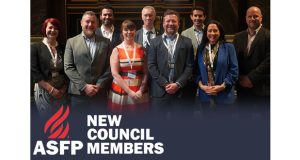Transport for London (TfL) has published its Sustainable Development Framework (SDF), which will support its property development programme as it embarks on a large number of residential, commercial, and masterplanning projects across London.
The framework, which is closely aligned to both TfL’s Corporate Environment Plan and the Mayor’s Recovery Programme, sets out TfL’s approach to driving positive social impact, promoting economic development, and embodying environmental stewardship across its developments.
The framework contains more than a hundred hard metrics, stretching targets, as well as industry-leading guidance, and builds upon industry best practice by uniquely combining a metric-driven focus on performance with a triple-bottom-line approach.
Working closely with its development partners and multiple stakeholders, the SDF was piloted extensively across TfL’s property development portfolio and has been implemented across more than 20 projects. Since its application, a range of cost-effective and value-enhancing sustainability performance improvements have already been achieved including a 56 per cent reduction in operational carbon emissions, an increase in average Urban Greening Factor from 0.29 to 0.42, and an increase in average Home Quality Mark rating from 3.5 Stars to 4.4 Stars.
The SDF has been designed to accommodate a diversity of sites and is already delivering positive results within developments. TfL’s over-station development at Southwark Tube station has been designed to be one of the most sustainable office buildings in the world. The development will be constructed from hybrid steel and cross-laminated timber frame, reducing its weight and helping to ensure construction efficiency, minimal waste and a significant reduction in embodied carbon. It is also designed to use waste heat from the Tube station below, alongside air source heat pumps and solar panels, to make carbon dioxide savings.
More widely, through its construction skills programme, TfL has also trained almost 2,500 people, 78 per cent of whom had been unemployed. Many of these people have then been able to use this training to successfully apply for jobs, tackling the acute skills shortage facing the construction industry.
By sharing the SDF Handbook more widely with the industry, TfL hopes to begin a dialogue across the industry around the use of performance-focused sustainability approaches. In coming months, TfL will engage and collaborate with the industry and wider stakeholders prior to publishing an updated Handbook with detailed technical guidance as a publicly accessible resource for the industry to use next year.
Derek Wilson, Head of Sustainability – Commercial Development at Transport for London (TfL) said: “We are excited to be sharing our Sustainable Development Framework with the industry and are eager to hear their feedback, so that we can refine it further ahead of us publishing it as an open-source resource that can be used by all. We face many challenges – from the impact of climate change to the skills shortage in the construction industry – and we believe that this Framework will help us and other developers create projects that drive positive change and build a city that is fit for the future.”
For more information click here.
Recruiting for soft FM services is proving more difficult in the post-Covid workplace. So, what can FMs do to overcome this?
Sara Bean, Editor of FMJ, and Jess Pritchard, Head of Corporate Sector at Moneypenny are joined by panellists:
- Mark Whittaker, General Manager, Thomson FM & Chair of IWFM
- Ian Wright, Soft Services Manager, University College London
- David Bauld, Group Facilities Manager, Paradigm Housing
- Coleen Cloherty, Director of Build Recruitment
Together they will discuss the current skills shortage in a number of FM areas, ways to keep staff engaged in their job through brilliant culture, and how outsourcing could be a solution to the recruitment issue. Secure your place now for Thursday, 25th November at 11am.
To register click here.





